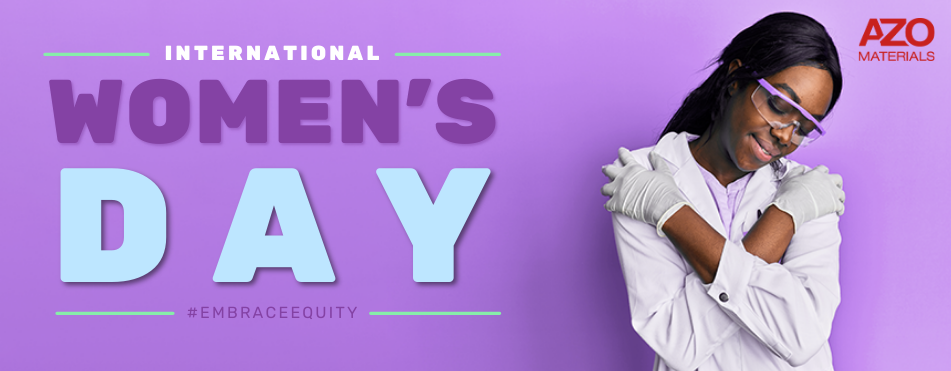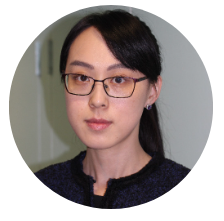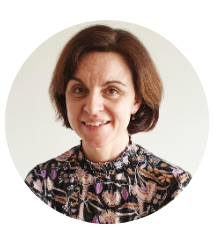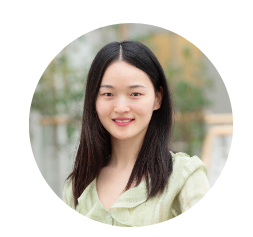
International Women's Day is a World Day celebrating the social, economic, cultural, and political achievements of women globally. This year's theme, 'Embracing Equity', strives to highlight equal opportunities for women in all sectors, while the UN's focus on 'DigitALL' looks at innovation and technology for gender equality.
To celebrate International Women's Day this year on AZoM across both themes, we spoke with three researchers about their work in the domain of materials science and engineering and their advice for women starting out in their field.
Dr. Tan Sui
 Dr. Tan Sui is a Senior Lecturer in Materials Engineering and Deputy Head of the Centre for Engineering Materials at the School of Mechanical Engineering Sciences (MES) at the University of Surrey, UK. She holds a Royal Academy of Engineering Industrial Fellowship and visiting role at the National Physical Laboratory, UK. She is also a Chartered Scientist (CSci) and a Fellow (FIMMM) of the Institute of Materials, Minerals, and Mining (IoM3).
Dr. Tan Sui is a Senior Lecturer in Materials Engineering and Deputy Head of the Centre for Engineering Materials at the School of Mechanical Engineering Sciences (MES) at the University of Surrey, UK. She holds a Royal Academy of Engineering Industrial Fellowship and visiting role at the National Physical Laboratory, UK. She is also a Chartered Scientist (CSci) and a Fellow (FIMMM) of the Institute of Materials, Minerals, and Mining (IoM3).
Nicole Meulendijks
 Nicole Meulendijks currently holds the position of project manager/coordinator of several international R&D projects with a main focus on materials and high-tech systems for sustainability. In these projects, she intensively collaborates with partners over complete value chains and from different (company) cultures. In her role, she furthermore has a high involvement in business and project development.
Nicole Meulendijks currently holds the position of project manager/coordinator of several international R&D projects with a main focus on materials and high-tech systems for sustainability. In these projects, she intensively collaborates with partners over complete value chains and from different (company) cultures. In her role, she furthermore has a high involvement in business and project development.
Nicole's key areas of expertise are project management for contract research and funded projects, coordination of funded projects (e.g. H2020, HEU, EFRO), project development, and opportunity management.
 Dr. Xueping Liu
Dr. Xueping Liu
Dr. Xueping Liu is currently a Ph.D. student and graduated from the University of Surrey in Jan 2023.
_____________
Please could you introduce yourself and your main research focus?
Dr. Tan Sui
I am a Senior Lecturer in the School of Mechanical Engineering Sciences, University of Surrey. My research efforts have been devoted to the improved design and extended functionality of a range of materials for future industrial applications, such as engineering alloys for nuclear safety and bioinspired composites for next-generation dental crown materials.
Nicole Meulendijks
My name is Nicole Meulendijks. I’m a Project Manager at the department of Materials Solutions at the Dutch organization of applied scientific research, TNO. I studied Chemistry at the Higher Laboratory Education level in Eindhoven, the Netherlands, and obtained my B.Sc. degree in 2001. I started my professional carrier as a research assistant at the Eindhoven University of Technology. I have been working for TNO for more than 15 years, and my main research focus is the development of materials and high-tech systems for sustainability.
Dr. Xueping Liu
My name is Dr. Xueping Liu, and I am a Ph.D. at the Advanced Technology Institute at the University of Surrey. My research focuses on halide perovskite materials for photovoltaic devices.
Materials science and engineering is advancing at a phenomenal rate across its many sub-disciplines. What inspired you to pursue a profession in this field, and why do you enjoy it?
Dr. Tan Sui
My mum is a senior mechanical engineer who has been my role model through her dedication and enthusiasm in her career. She has inspired me to pursue a degree and later a profession in this field. Without her support, I would not have achieved as much in my rewarding career as a senior lecturer.
I enjoy working in this field because I strongly believe that fundamental research can improve societal outcomes through innovative engineering. I see how my research can contribute to driving positive changes for engineering and society by solving problems in complex engineering systems and components to avoid premature failure and hence improve the lifespan of industrial applications. Ultimately, it would be very rewarding to witness my research contributing to building a sustainable net-zero society in the UK and worldwide.

Image Credit: Gorodenkoff/Shutterstock.com
Nicole Meulendijks
The area of research I am currently focusing on is applying optics and photonics, in combination with materials research, to develop technologies that have a significant contribution to the safeguarding of our future energy supply. Personally, I was always highly interested in the scientific aspects of life and how, by combining certain scientific approaches, innovative breakthroughs can be achieved. This is very much reflected in the current field of research; we focus on the development of materials and high-tech systems attributed to the transfer from fossil fuels to sustainable and green energy sources and the reduction of CO2 emissions in order to limit global warming and to achieve net-zero CO2 emissions by 2050. I personally find it very inspiring to work with highly committed partners and co-workers over the complete value chain to jointly achieve these high-impact goals.
Dr. Xueping Liu
I enjoy exploring knowledge and creating new things, which gives me a great sense of spiritual enrichment. Curiosity about the world drives me to further study the field of scientific research step by step. So, I chose to study materials and engineering for my bachelor to and deep learning in electronic engineering for my Ph.D. Becoming a scientific researcher is my belief and career objective for the future, and it will be an excellent experience for me on the road to pursuing science.
According to UN reports, women are still statistically underrepresented in STEM worldwide. What are some of the ways through which hurdles as a result of gender bias can be overcome?
Dr. Tan Sui
We first need to be self-disciplined and self-confident as female role models in order to influence others. This is what I learned from my mum in the past. At home, I am always keen to convey appropriate gender-related values to my daughter in our daily talks to raise her self-awareness and confidence.
Secondly, support and opportunities from local communities are catalysts to the advocation of gender equality. In 2019 I was awarded the first cohort of the EPSRC-WES (Women in Engineering Society). I then became a member of the Women in HE Network and sat on the faculty and university ED&I community and panel. As a female staff member at Surrey, I am passionate about promoting the awareness, understanding, and implementation of ED&I. Surrey could take the leading position in the local community in advocating gender equality with commitment and extensive public engagement.
Thirdly, engagement in policymaking will also advocate for and maximize the impact of women’s research. This was inspired by a talk at my RAEng industrial fellowship induction event last year. I will be joining a Royal Society Science Policy Primer scheme organized by the Royal Society to see how scientific research can help to shape, and is shaped by, government policy.
Nicole Meulendijks
To achieve an optimal balance in a professional working environment and in collaborating teams, it is highly important to overcome gender bias.
In general (broader than the field of STEM), at companies and institutes, the recruitment and career progression process has to be critically assessed. Gender balance should not only be represented in the overall numbers but also in the types of roles and the seniority levels.
Also, adopting flexible working arrangements in the business can be helpful in achieving a balanced distribution. But the most important thing to start with is the encouragement of girls to pursue the very challenging and broad STEM area. This can start at a young age, as currently there are still a significant amount of (young) girls who may not have a completely positive view of technical oriented jobs and science. Role models can be of significant influence in this aspect. Women in strong positions in the area of STEM can help to encourage young people to take their lessons on board in shaping their own future roles. By hearing about the broad fields of research and exciting topics, a potential passion for science can be fueled!
Dr. Xueping Liu
Science and technology have no gender. There should be nothing that prevents women from reaching their full potential as they contribute to the advancement of science. Reducing gender bias in scientific research needs to start from the social environment and the rationalization of family responsibility sharing. This begins with implementing fair performance evaluation and equal opportunity at all levels of academia to encourage and attract more women into STEM fields. The proper guidance from professors and mentors, especially from female role models, can help develop self-confidence and a growth mindset in young female researchers. Additionally, support from parents and partners, mentorship, and a framework that encourages a healthy work environment will help better retain women in science.
Do you have any advice for young women or girls who wish to study or start a career in science?
Dr. Tan Sui
As a mum myself, I always encourage my daughter to improve her learning skills and positive mentality both at home and at school that are essential for her future career. Since I became a coordinator for the Surrey WES Education Partnership, chair of the partnership working group, and a Fellow of WES, I have endeavoured to achieve the mission of stimulating female engineering staff and students to achieve their full potential in their studies and career. My advice to young women or girls who wish to study or start a career in science is to be disciplined, confident, resilient, and passionate about science. This is a fantastic subject that can trigger the revolution of our world, and there will be a great number of opportunities ahead for personal development and achieving values.
Nicole Meulendijks
I would highly encourage young girls and women to start a carrier in a scientific area. To start and build your carrier in science I would recommend finding role models (with different characters, background,s and gender) with whom you can share your questions and concerns and who can inspire you. Throughout my whole career, I always felt inspired by the fact that the scientific field is so diverse, with so many highly complex challenges. Since the field is so broad, collaboration is key. By collaborating over different fields of research with people that might have a completely different view on the research questions and answers, you can really contribute to solutions that did not exist before and have a high impact on the world of today and tomorrow.
By starting a career in science, you will be able to combine disciplines and domains, you will learn to ask the right questions, and you will contribute to topics that matter and pave the way toward a brighter future.
Dr. Xueping Liu
The field of scientific research needs innovation, and the way of thinking of women is different, which is needed to develop innovative and diverse thinking. Women can make many contributions in STEM fields, and a diverse workforce brings with it the potential for better creativity and innovation, so we need their perspectives, skills, curiosity, and ideas as they bravely choose this road less traveled. I want every woman, every young girl, to know that nothing can stop them from succeeding if they just put their minds to it.
I advise young female scientific researchers to maintain confidence in their work, pursue and stick to their career objectives bravely, and never give up.
Looking Forward to 2023
Video Credit: UN Women / Youtube.com